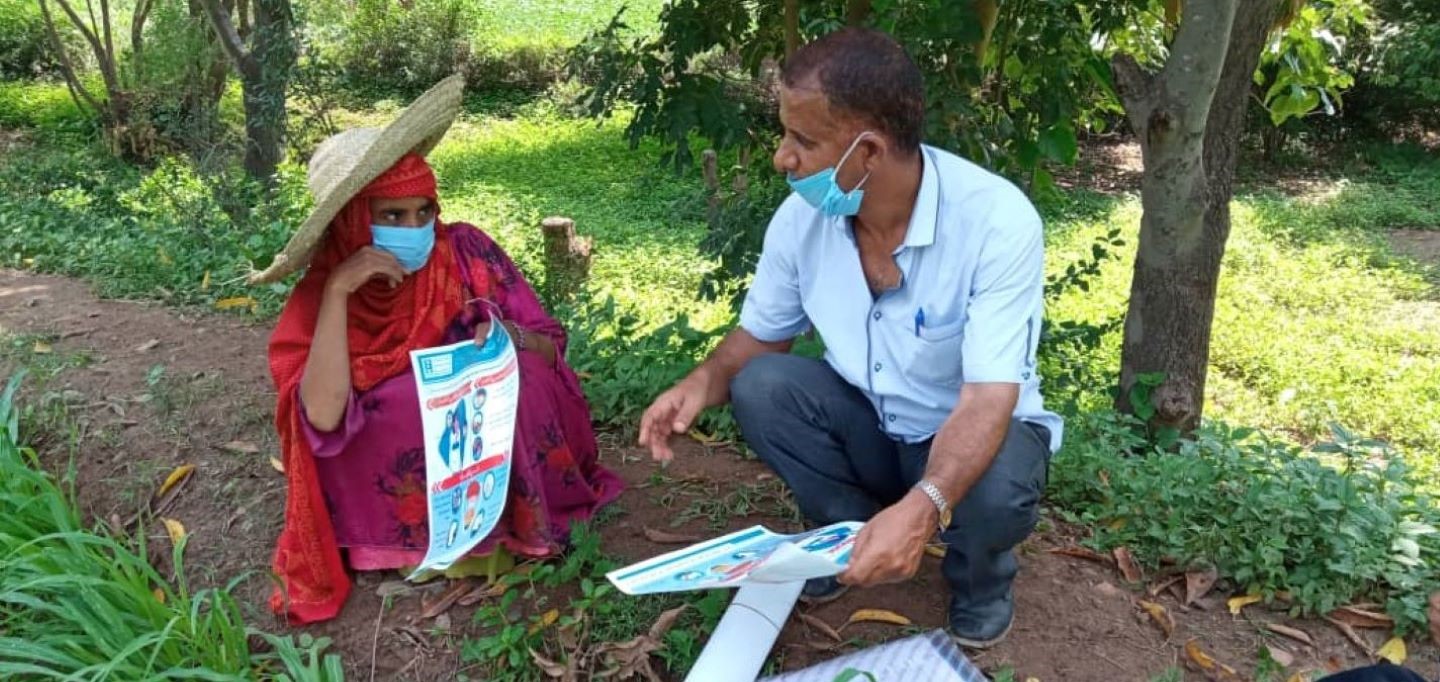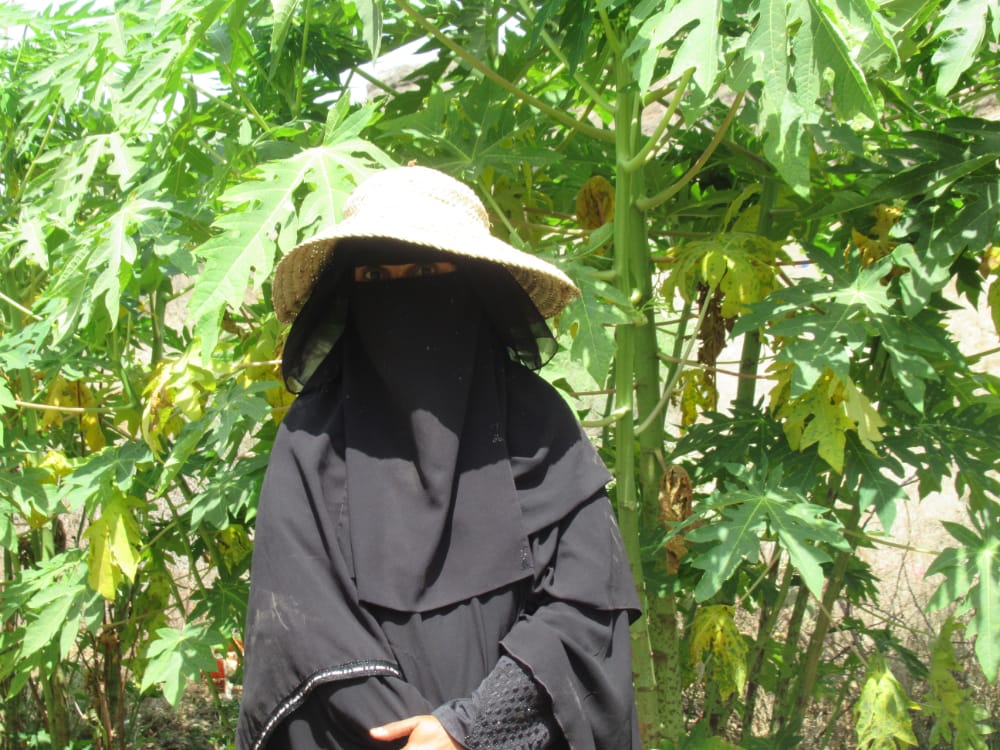Against the backdrop of conflict and COVID-19, IFAD is helping farmers grow in Yemen
IFAD Asset Request Portlet
Asset Publisher
Against the backdrop of conflict and COVID-19, IFAD is helping farmers grow in Yemen
Estimated reading time: 4 minutesYears of conflict in Yemen have taken their toll – and among all of the devastation that’s been wrought, the country’s agricultural sector is one of the hardest hit.
Previously, agriculture and fisheries employed over half of the country’s workforce. Today, farm machinery stands silent in the fields, damaged by strikes; irrigation systems and storage facilities have been demolished; and herds of livestock have been decimated. Logistical chains have completely broken down, making it difficult to acquire seeds, fertilizer, and other supplies.
With local food production severely compromised, the country has become increasingly dependent on imports – but they’re much more expensive than domestically produced food. The COVID-19 pandemic has further devastated Yemen, adding increased pressure to an already strained health care system and limiting agricultural production even more.
Adding to the conflict and COVID-19, the war in Ukraine has begun to weigh heavily on Yemenis, sending the costs of fertilizer skyrocketing and further restricting grain imports.
With as many as 78 per cent of Yemenis now affected by poverty, many households are struggling to obtain even minimal amounts of food, and hunger and food insecurity are widespread.
When representatives of the IFAD-supported POLAR project began their assessments of the situation on the ground, they knew there was a lot of work to be done – but they were hopeful about the outcome.

Life in Yemen’s most food-insecure regions
POLAR, an initiative funded by IFAD’s Rural Poor Stimulus Facility and implemented by the Social Fund for Development, assists land-holding rural Yemeni households by building agricultural value chains that they can take part in. Priority is given to those below the poverty line, those directly affected by the conflict or the pandemic, those hosting displaced persons, and households headed by youth and women.
The project operates in two of the most food-insecure areas of the country, Taiz and Lahj, where practically everyone has cut back in some way—from reducing the amount of food they put on the table to reconsidering their children’s school fees. Yet, many of these communities have begun hosting families like Sabreen’s who are seeking refuge in rural areas.
Sabreen fled with her children to a small community in Taiz, becoming her family’s sole breadwinner overnight. Her father periodically sent her some money, but it was never quite enough to cover their expenses. Cut off from the rest of her family, and with few opportunities to find work in her new community, Sabreen worried constantly about how to make ends meet.
Working with communities from the ground up
Like many IFAD-supported projects, POLAR began by meeting with local farmers to learn what’s most important to them. In Taiz and Lahj, farmers wanted to choose familiar crops that didn’t need much water, that had a short growth period (to make it easier to market and sell), and that were in high local demand. Together they decided on four crops: tomato, pepper, papaya and courgette.
Sabreen knew POLAR was her best chance to earn a decent income for herself and her family but had no land of her own – a prerequisite to participate in the project. Taking a risk, she spent some of her meagre savings to rent a plot of land so she could join in.
The project provided the inputs and training the farmers needed to get started, covering everything from growing cycles and fertilizer schedules, to how to recognize and treat common crop diseases.
At the next harvest, farmers saw an incredible difference in their crops, in both quantity and quality. Sabreen, for her part, brought in a bounty of tomatoes. They fetched a good price at the market – more than enough to cover her living expenses, including the costs of renting the land.

Building resilience for the challenges ahead
In recent months, Sabreen’s family and many others have found stability thanks to POLAR’s support. Over 1,000 families have seen their agricultural returns grow by up to 70 per cent, and the resulting increase in income has allowed them to access good-quality food and health care, while sending their children to school.
There are still many challenges ahead, of course. Beyond the twin threats of Yemen’s ongoing civil conflict and the pandemic, climate change is shifting rainfall patterns, making water ever scarcer.
Just as POLAR is supporting Yemeni small-scale producers through the pandemic, we’re ready to do so again as the country grapples with rising food, fertilizer and fuel prices, pushed higher by the war in Ukraine. Yemen is one of the highest-priority countries in IFAD’s Crisis Response Initiative, established to build resilience in areas of the world heavily affected by the war.
In the coming months, we’ll offer tailored interventions to help farmers access inputs, secure finance, and find markets – as a way to honour the hard work of farmers like Sabreen and do our part to protect them against the uncertainties ahead.
Learn more about IFAD’s work in Yemen.
Publication date: 16 June 2022